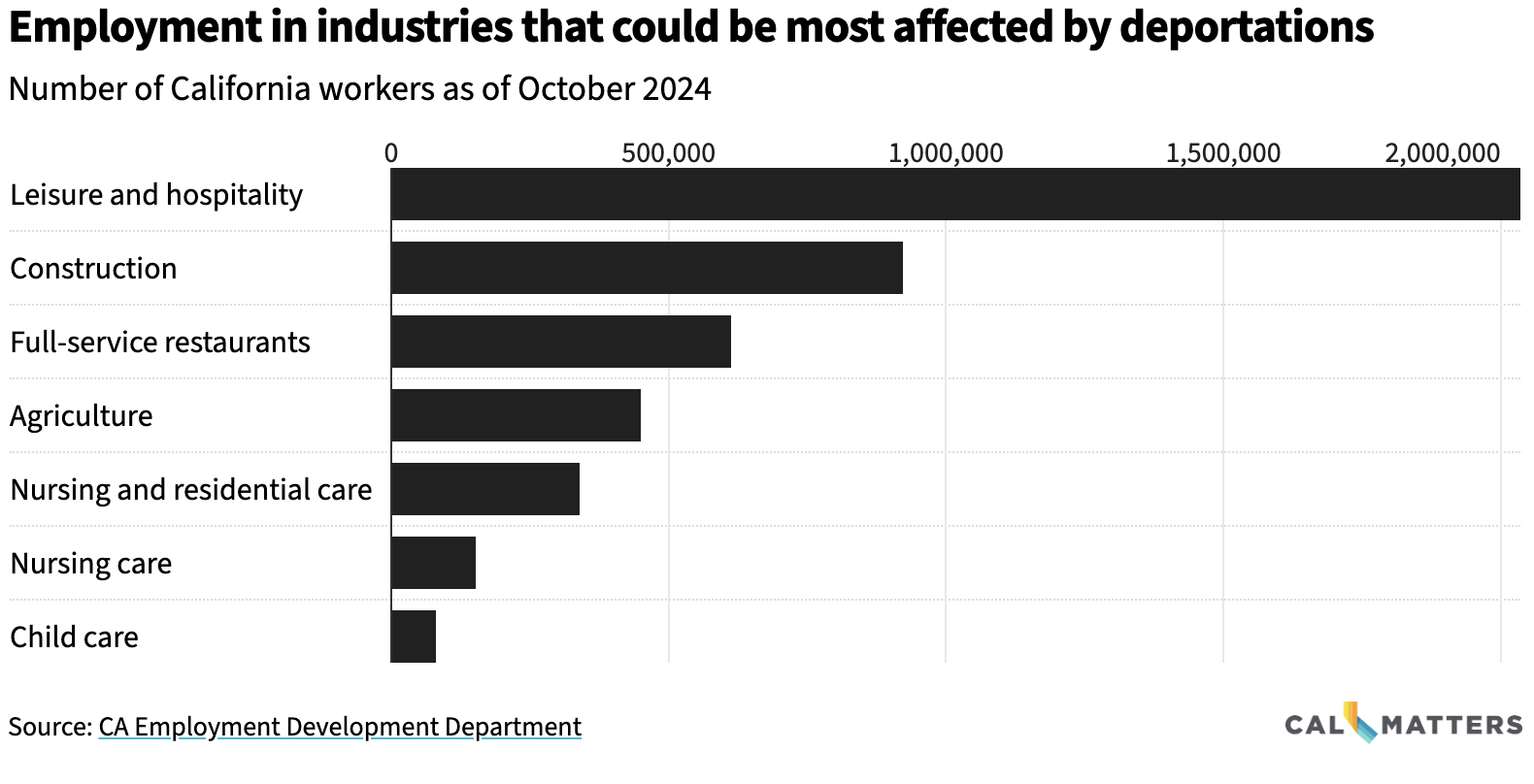
Mass deportations proposed by President-elect Donald Trump could cause significant economic harm in California, where immigrant labor—both documented and undocumented—is a cornerstone of key industries such as agriculture, construction, hospitality, child care, and tech. With immigrants constituting 27% of the state’s population, deporting undocumented workers, who comprise about 10% of the labor force, could lead to hundreds of billions of dollars in lost production.
The economic effects would extend beyond labor shortages, as undocumented immigrants contribute as consumers and taxpayers, paying $8.5 billion annually in state and local taxes. Industries dependent on immigrant labor, like California’s wine industry, construction, and tech, could experience ripple effects. Businesses may resist drastic workforce reductions, especially given the high cost of replacing deported workers and the current tight labor market.
Deportations would also have social and legal ramifications, potentially driving immigrant communities into hiding and straining local economies. Advocates, sanctuary cities, and state officials are preparing for legal challenges and community support initiatives. Fear and uncertainty extend beyond undocumented immigrants, affecting those who might be mistaken for being undocumented.
While some industries and business groups are silent or dismissive, unions and immigrant advocacy organizations emphasize the critical role of immigrants in California’s economy and community resilience. Small businesses, many founded by immigrants, could also face setbacks. Overall, the deportation plans risk destabilizing California’s economic foundation and exacerbating social tensions.


Recent Comments